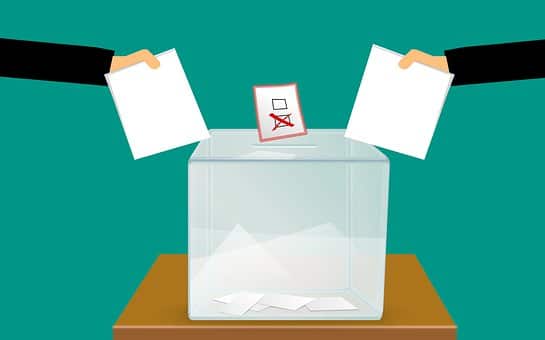Now that our national election has become a matter of history, it may not be amiss to pause a few moments for sober reflection. To be sure, future historians will be able better to evaluate its meaning than we, the participants in the contemporary scene; but we can’t avoid asking certain questions and making a few observations. For example, what bearing will Mr. Kennedy’s election have on Roman Catholic influence in American politics? What may he the social implications? Will it mean another gigantic step toward the welfare state? Is it true that henceforth a candidate’s TV appearance will be the determining factor for many voters, rather than the principles and platform he espouses?

What has come to light in our own circles also may give us a few moments’ pause. Since Calvin College’s involvement in the campaign has become a public matter, nothing is gained by ignoring it. Let’s face it; Our College bas been much in the limelight before and after election day. It is no secret that a few of the professors favored the election of Mr. Kennedy and said so publicly. One has been an active campaigner for him. Among the students a Kennedy Club was organized. We know that some of our people voted for this candidate. So here is loyalty to a political party and its philosophy. And we want to be loyal to the democratic ideal of freedom of speech and political action. The voting booth should remain inviolable; the right of the secret ballot must be maintained.
However, there is more to say on the subject. There are times when political issues are such as to challenge our right to vote for a certain party or candidate. In this year’s election we were confronted with a religious issue. It was raised by the allegiance which Senator Kennedy, as a member of the Roman Catholic Church, owes to the Pope at Rome, not only as a spiritual leader but also as the head of a foreign state—one who claims temporal as well as spiritual power. The Senator professed adherence to the principle of the separation of church and state but that profession in no way altered the fact of his allegiance to the Vatican.
There is every reason to believe that the insistence of Kennedy and his party leaders on keeping the religious issue alive solidified the support of Kennedy by a very large number of Roman Catholics. Sad to say, some Protestants put their loyalty to the Senator’s party and their support of the dubious principle of the welfare state above their concern for the danger of a stronger Roman Catholic influence in our political institutions. We suppose some Catholics did vote for Nixon. But there was, as far as we know, no Nixon Club in Aquinas College in Grand Rapids and we heard of no Aquinas teachers who went campaigning for Nixon, the only candidate who scrupulously kept the religious issue out of his speeches.
Protestants can also point to reprehensible campaign ethics of the successful candidate and his helpers. Who could avoid thinking of the pernicious principle that the end justifies the means when a person with a huge hospital bill was interviewed, to illustrate the need of providing medical care for elderly persons, when nothing was said about that person’s Blue Cross insurance? (See David Lawrence on this in his November 7 article in the Grand Rapids Press.) Also, to Mr. Kennedy must go the dubious distinction of initiating political rallies on the Lord’s Day. And who did not hang his head in shame when former President Harry Truman sounded forth in the language of the gutter?
We hold that the administration at Calvin College erred when it failed to give due consideration to the convictions and feelings of the great majority of our Christian Reformed people by not keeping the political issue out of its classrooms and not restraining one of its professors from making propaganda for Kennedy even in church meetings. After all, Calvin is a church school and those in charge might have known that by not sufficiently reckoning with the sensibilities of our people and ignoring accepted Roman Catholic teaching and practice in church-state relationships the School was bound to suffer loss in moral and financial support by members of our churches. We believe that a more forthright apology(?) than the one that appeared in The Banner of November 18 would have been in order.
